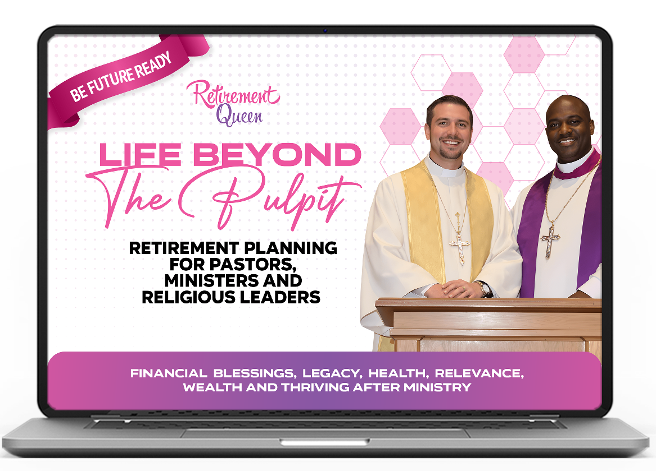
Pastor Retirement Planning: Essential Catch-Up Strategies for Those Behind on Savings
The Pastor's Unique Retirement Challenge
If you've devoted decades to ministry while putting retirement savings on the back burner, you're not alone. Recent studies show that over 50% of pastors feel unprepared for retirement, with nearly a third having less than $10,000 saved. The good news? Effective retirement planning for pastors can start at any age—even late in your career.
Why Pastoral Retirement Planning Differs
Ministers face unique financial circumstances that traditional retirement advice doesn't address:
- Housing allowance complexities that change during retirement
- Inconsistent compensation across different churches and ministry positions
- Self-employment tax considerations that impact Social Security benefits
- Limited access to employer matching and traditional retirement benefits
These factors create special challenges for pastor retirement planning that require targeted strategies.
5 Powerful Catch-Up Strategies for Pastor Retirement Planning
1. Maximize Age-Based Contribution Opportunities
For pastors 50 and older, the IRS allows substantial "catch-up contributions" to retirement accounts. In 2025, you can contribute an additional $7,500 beyond the standard $23,000 limit to your 403(b) plan—bringing your total potential contribution to $30,500 annually.
For maximum impact, explore whether you can simultaneously contribute to both 403(b) and 457(b) plans, effectively doubling your tax-advantaged savings potential. This little-known strategy has helped numerous ministers significantly accelerate their retirement preparations.
2. Leverage Housing Allowance Benefits for Retirement Savings
Many pastors have lived in church-provided housing throughout their careers, missing the opportunity to build home equity. Consider these approaches:
- Negotiate transitioning partially or fully to a housing allowance in your final years of ministry
- Explore whether retirement distributions from your denominational pension can qualify for housing allowance tax benefits
- Develop a strategic plan for securing affordable housing before retirement begins
Pastor Michael shares: "After 30 years in the parsonage, I negotiated with my church board to receive half my housing as allowance for my final five ministry years. This enabled me to purchase a small retirement home while still serving."
3. Develop Multiple Income Streams for Pastoral Retirement Security
Diversifying your retirement income beyond traditional savings accounts provides greater security:
- Consulting and interim ministry opportunities utilizing your years of experience
- Teaching and educational roles at seminaries, Bible colleges, or online platforms
- Writing and publishing your accumulated sermons and teaching materials
- Chaplaincy positions offering flexible hours compatible with semi-retirement
These additional income sources can significantly reduce pressure on your retirement savings while allowing continued ministry impact.
4. Optimize Social Security Benefits in Your Minister Retirement Plan
Understanding how Social Security works for clergy is essential:
- Ministers are considered self-employed for Social Security purposes (unless exempted)
- Your benefit calculation may be affected by years receiving housing allowances
- Strategic claiming decisions between ages 62-70 can increase lifetime benefits by tens of thousands
Visit the Social Security Administration's website (www.ssa.gov/benefits/retirement/estimator.html) to calculate your projected benefits based on your complete work history.
5. Implement Tax-Efficient Giving Strategies While Securing Retirement
As someone who has dedicated your life to ministry, incorporating charitable giving into your retirement planning creates powerful synergies:
- Qualified Charitable Distributions (QCDs) from IRAs can satisfy Required Minimum Distributions while supporting ministry
- Donor-Advised Funds allow tax deductions now while distributing gifts throughout retirement
- Charitable Gift Annuities provide lifetime income while supporting your chosen ministries
Next Steps for Effective Pastoral Retirement Planning
Immediate Actions to Strengthen Your Financial Future
- Schedule a retirement assessment with your denominational pension board or a financial advisor experienced with clergy finances
- Calculate your retirement income gap to understand exactly what you're working toward
- Create a debt elimination timeline prioritizing high-interest obligations
- Review all potential retirement accounts from previous ministry positions
- Develop your personalized catch-up strategy with specific monthly targets
Conclusion: It's Never Too Late for Pastoral Retirement Planning
While starting early is ideal, implementing these targeted strategies can dramatically improve your retirement outlook even in the later stages of ministry. The biblical principle holds true: faithful stewardship in this season can provide for your needs while honoring your lifetime of service.
Remember that retirement planning for pastors requires specialized knowledge of ministerial tax rules, housing allowances, and denominational benefits. The right guidance can make a tremendous difference in your financial security.
Would you like personalized help implementing these pastor retirement planning strategies? Visit RetirementPlanningForPastors.com for resources specifically designed for ministers in the later stages of their careers.
About the Author
Bibi Apampa, "The Retirement Queen," specializes in building retirement wealth and financial planning for ministers and church leaders. With over 20 years of experience helping pastors create financially secure retirements, Bibi understands the unique challenges facing those in ministry. Through her work at RetirementPlanningForPastors.com, she has guided hundreds of pastors through effective catch-up strategies and secure retirement transitions. For customized retirement planning assistance specifically for pastors, visit www.RetirementPlanningForPastors.com today.